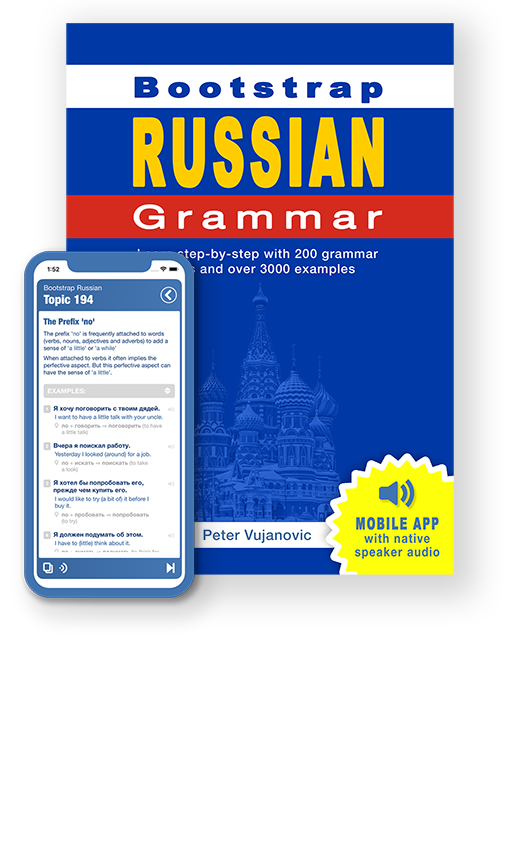Russian grammar - The verb 'to be' |
|||
|
|||
The Russian verb 'to be' ('is', 'are' etc.) does not appear in the present tense. -- So in Russian we say 'Sergei here' when we mean 'Sergei is here'. But only in the present tense. In phrases like 'A is B', when both A and B are nouns, a dash '—' is used in place of the verb 'to be'. Note that Russian has no concept of articles like [a] and [the]. They are implied from context. |
| Examples: | |
|
Сергей здесь.
Sergei is here.
|
|
|
Ульяна там.
Ulyana is there.
|
|
|
Вот Ольга.
Here is Olga.
|
|
|
Дом там.
[The] house is there.
|
|
|
Иван дома.
Ivan is at home.
|
|
|
Татьяна — женщина.
Tatiana is [a] woman.
|
|
|
Виктор — мужчина.
Victor is [a] man.
|
|
|
Татьяна — профессор.
Tatiana is [a] professor.
|
|
|
Виктор — водитель.
Victor is [a] driver.
|
|
 |
|


 The present tense verb 'to be' [is] is implied
The present tense verb 'to be' [is] is implied
